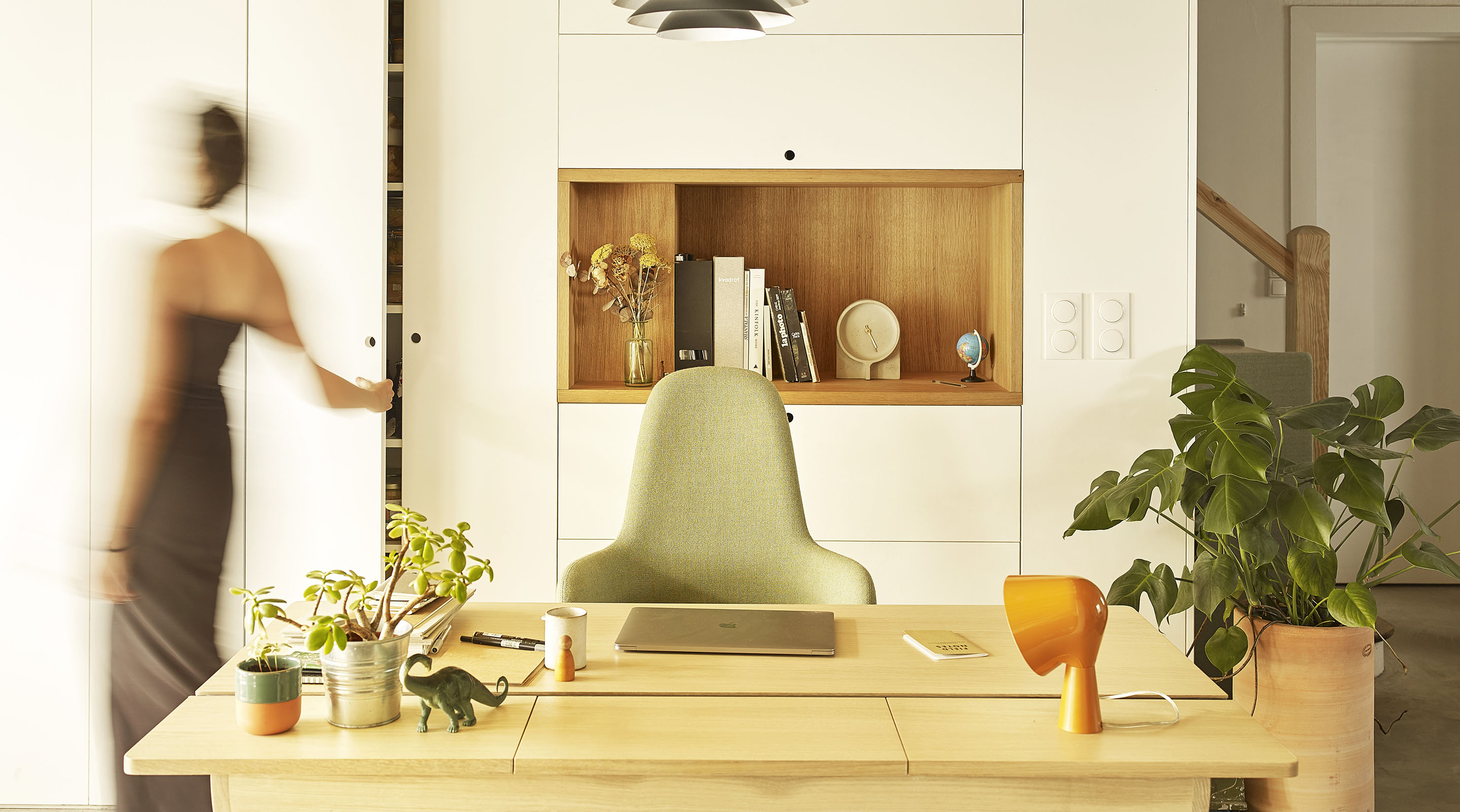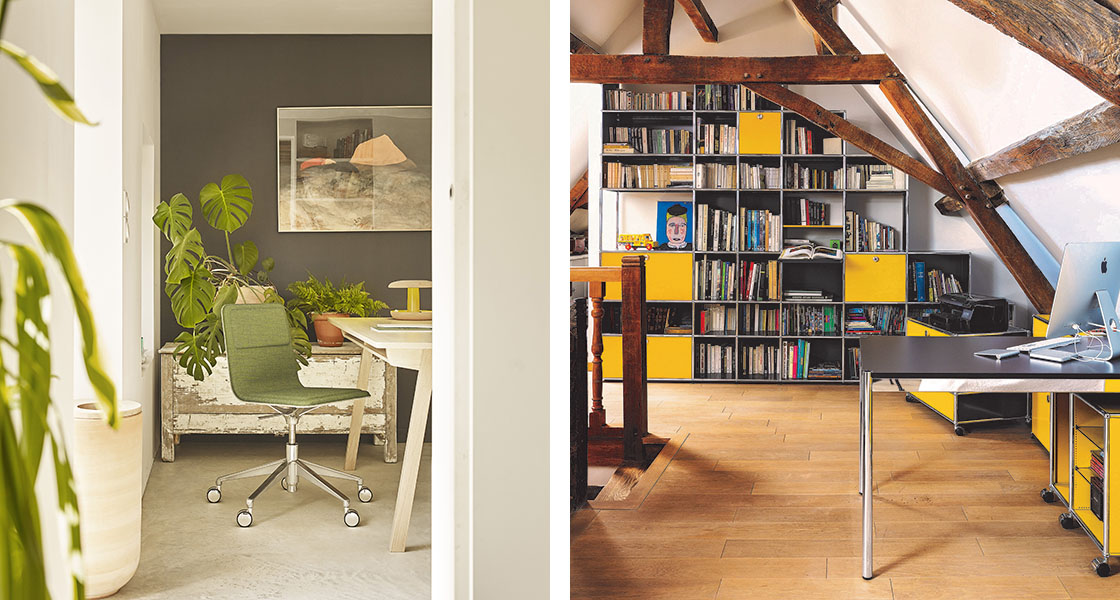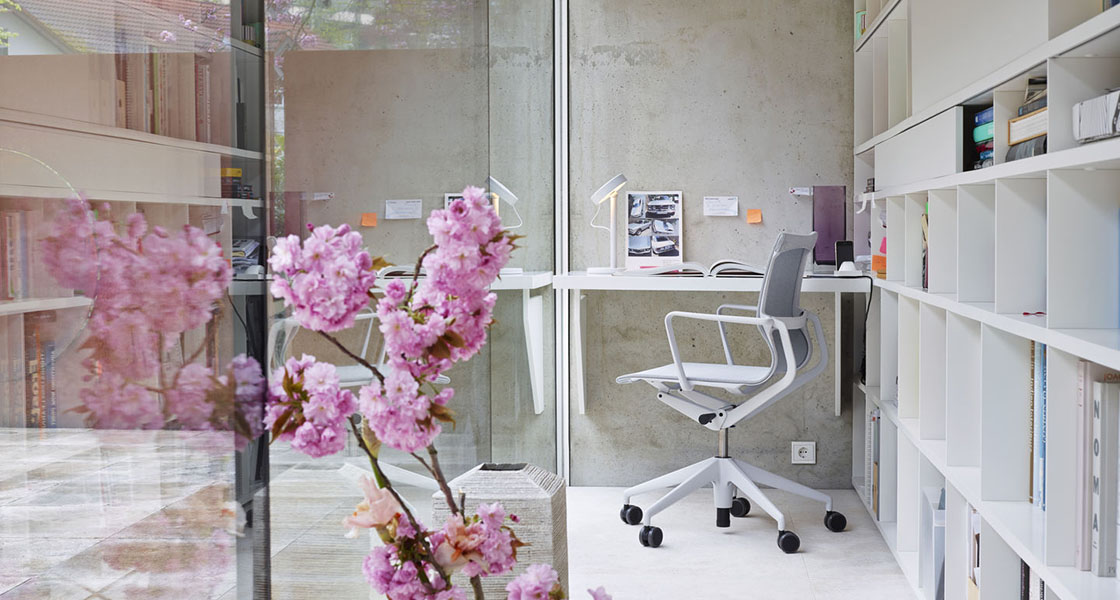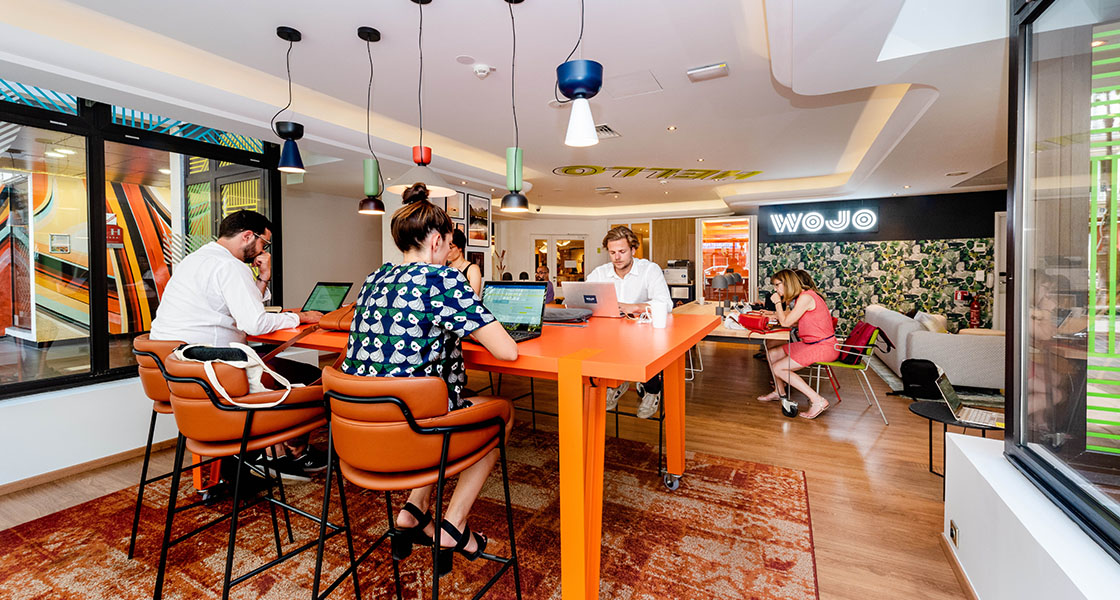CHRONOTOPIA, rethinking the fluidity of space
Published on 5 December 2020

The term may be unfamiliar, yet it refers to a challenge that is currently rippling across all sectors, impacting hotels, homes and offices alike.
How can spaces be adapted to accommodate different activities at different times of day? That’s precisely what chronotopia’s all about. Far from being an abstract concept, it is something that has long-since been a reality in many a public space, when a market square, for example, becomes a car park or a playground, or the backdrop for local festivities or a concert. But with the arrival of new technology, digital solutions and connected devices, chronotopia has gradually edged its way into the intimacy of our homes. Our kitchens, lounges and bedrooms all effortlessly morph into workspaces or cinemas at various times of day: all it takes is a helping hand from a laptop, tablet or smartphone. It marks a gradual shift in behaviour. We may not know it, but we’re all involved in chronotopia every single day.
One Covid pandemic and a few lockdowns later, the concept has been thrust centre stage as a key topic for architects, designers and design houses to explore. What changes can be made in order to carry out an ever-growing number of increasingly diverse activities within that same confined space we call home? What can be done to turn a profit from workspaces and hotel rooms when head offices have been left abandoned, tourists are staying at home and all business travel is on hold? How can we design and create spaces that fulfil different purposes at different times of day? Fast-tracked by the pandemic, this change in behaviour clearly needs a future-proof response.

Working from home is one thing. Remote working is quite another. When home-working happens on a systematic rather than ad hoc basis, when it no longer involves just one but instead two or even three family members, when the need for concentration is accompanied by a need to participate in meetings on Zoom, the situation becomes far more complex.
But it’s not all bad. Over the past few years, open-plan offices have begun to resemble lofts. Nowadays, no-one’s shocked to find sofas in “relaxation zones” or adorning informal meeting rooms. And seeing a touch of wallpaper in the reception area only serves to underscore the trend: the design features once reserved for the home have now been resolutely embraced by the office. But then business furnishings have become a must within residential interiors, too. USM’s colourful storage systems are popping up in lounges, bedrooms and kitchens. Then there are Vitra’s high-backed Alcove and Soft Work sofas, initially designed to meet the need for office privacy. In the home environment, they almost become rooms in their own right, providing enough peace and quiet to focus on an Excel spreadsheet... or that favourite box set. Oak, wool, leather... At Alki, gentle hues, curvaceous silhouettes and warm materials all come together to bring harmony to both work time and down time. The osmosis between the two worlds has given rise to hybrid objects whose appearance and comfort adapt to our newly acquired needs.
But our interiors still have other issues waiting to be resolved. Cookery lessons, homeschooling, sport, online shopping, remote cultural activities or get-togethers: what should we do with the food-processors, blenders, computers, screens, files, weights, dumbbells, yoga mats and other accessories required for the avalanche of activities we do over the course of each day? One possibility would be opting for a system such as Gautier’s ingenious and compact Imagine range, which offers endless storage and workspace solutions. That’s the visual pollution sorted. When it comes to tackling sound pollution, however, the noise reduction headphones we’ve seen put through their paces in so many magazines are clearly not a long-term solution. Organising and optimising the space, choosing modular furniture, opting for materials that are more comfortable and more hygienic... The challenges arise little by little as unprecedented activities take hold, new habits form and previously unfamiliar rhythms develop.


Now busier than ever at home, cocooned within our own four walls, we’ve turned our backs on office buildings and travel. For hotels and head office buildings, one question is consequently on everyone’s lips: what can be done to keep premises busy and buzzing when their usual occupants are conspicuous by their absence? All the scenarios converge, yet again making reference to different purposes and different times of day. In other words, chronotopia.
“Coworking” solutions are becoming increasingly prevalent within the hospitality sector. They tick both the comfort and health-safety boxes and offer somewhere to work that’s close to home at a time when the capacity of open-plan spaces has been reduced to enforce social distancing rules. Hotels, already well-practiced in the art of providing hospitality and services, are proving to be more than capable of developing reliable solutions. In the Nordic countries, the Scandic hotel group has launched a day pass system. Over at Accor, certain hotels had already been offering WOJO work spots for some time, and a few months ago the group launched its “Hotel Office” concept in Europe. These new set-ups allow lobbies, communal areas, rooms and suites to be used as offices during the week or in the daytime, before reverting to their original role at weekends or in the evening. “Workation” is a term that was coined from the terms “work” and “vacation”, with the concept reflecting hoteliers’ response to the widespread change in behaviour. In practice, it’s about giving people the opportunity to telework whilst away on holiday. Numerous leading hospitality groups, including Hyatt, Barrière and Hilton, have put together packages specifically tailored to this new working trend. They typically offer early check-ins and late check-outs, enabling guests to take advantage of their rooms for longer in order to relax or work.
Whilst homes - and hotels - are becoming hubs for personal productivity and concentration, office spaces are evolving into nerve centres for collaboration, interaction, creativity and innovation. When we can eventually head back to the office, it certainly won’t be to sit in glorious isolation in front of a computer. Maison&Objet, digital transformation consultancy Fabernovel, and French coworking leader Morning, the driving force behind the ReSPACE community, are spearheading a think tank to explore how workspaces can be reshaped. At a recent conference, they put forward the innovative concept of the “office as a service”. As a multi-faceted space, it must not simply be a place where teams can gather, but somewhere that fosters engagement and helps build team spirit. And that means it must boast a dynamic and flexible design. Come June, we’ll see reworked meeting rooms, the creation of agoras, modular zones used for talks, workshops, brainstorming sessions and presentations, and maybe even cultural events for the general public. The space must adapt to the ever-changing flow of traffic from one day to the next, and from one project to the next, and the amount of square footage may no longer be a reflection of power, but rather of a firm’s organisation and way of working. And that’s doubtlessly where the biggest challenge lies.
By Marie Montuir